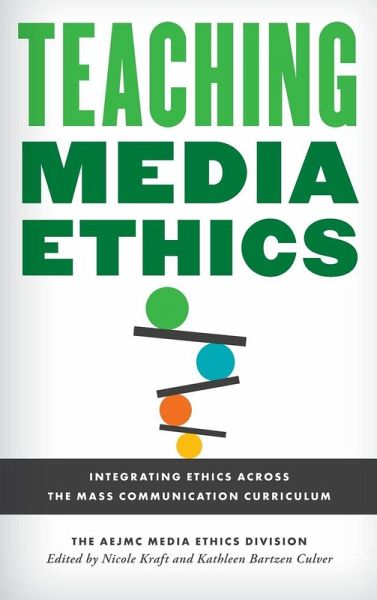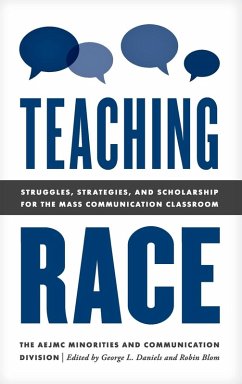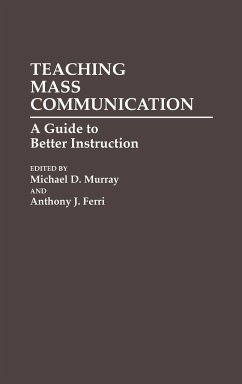
Teaching Media Ethics
Integrating Ethics Across the Mass Communication Curriculum
Herausgeber: Kraft, Nicole; Culver, Kathleen Bartzen
Versandkostenfrei!
Versandfertig in 1-2 Wochen
87,99 €
inkl. MwSt.
Weitere Ausgaben:

PAYBACK Punkte
44 °P sammeln!
Teaching Media Ethics gives journalism and mass communication instructors the ideas and tools they need to effectively incorporate media ethics into courses across the curriculum. It covers ethics-intensive courses from the undergraduate to the graduate level, as well as how to incorporate ethics into other classes related to reporting and strategic communication. The volume also includes nine chapters focused on key specializations, such as sports and social media, and critical issues, such as reporting on mental health. It offers thought-provoking chapters on diversifying the ethics curricul...
Teaching Media Ethics gives journalism and mass communication instructors the ideas and tools they need to effectively incorporate media ethics into courses across the curriculum. It covers ethics-intensive courses from the undergraduate to the graduate level, as well as how to incorporate ethics into other classes related to reporting and strategic communication. The volume also includes nine chapters focused on key specializations, such as sports and social media, and critical issues, such as reporting on mental health. It offers thought-provoking chapters on diversifying the ethics curriculum, inclusive teaching practices and challenges to traditional notions of media ethics. The only book of its kind in the realm of media ethics, this volume aims not to teach students directly but instead to "teach teachers" how to address ethics in their own classrooms and engage students effectively. It emphasizes practical advice and suggestions for activities and resources. Teaching Media Ethics has something for instructors at all stages of their careers and should be particularly useful to graduate students and faculty who are developing their approaches to journalism and mass communication classes. The authors, leading ethicists and award-winning teachers, approached their chapters with an emphasis on making it as easy as possible to deliver teaching in ethics.













